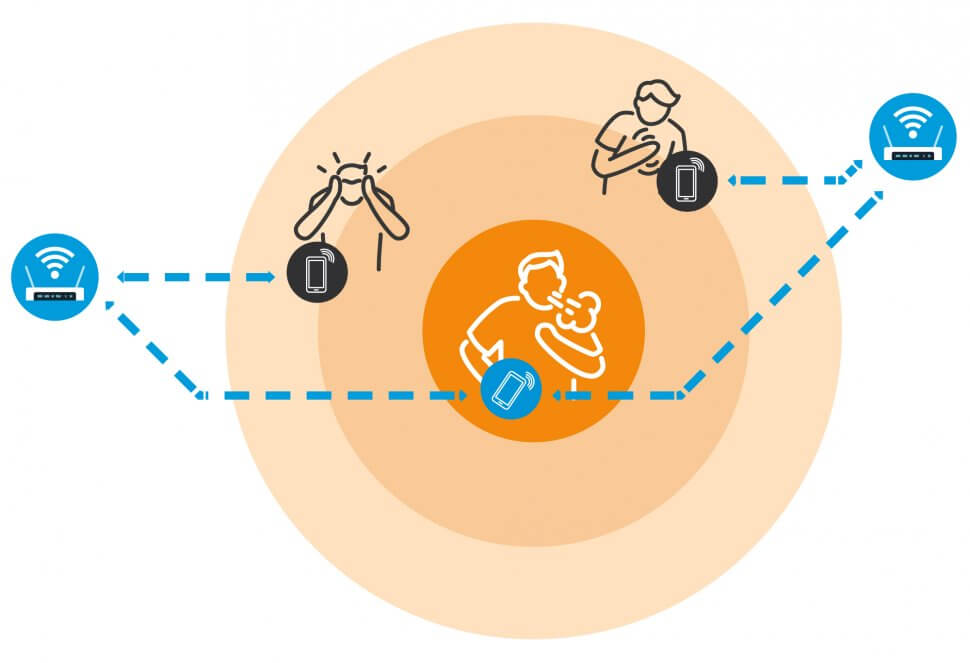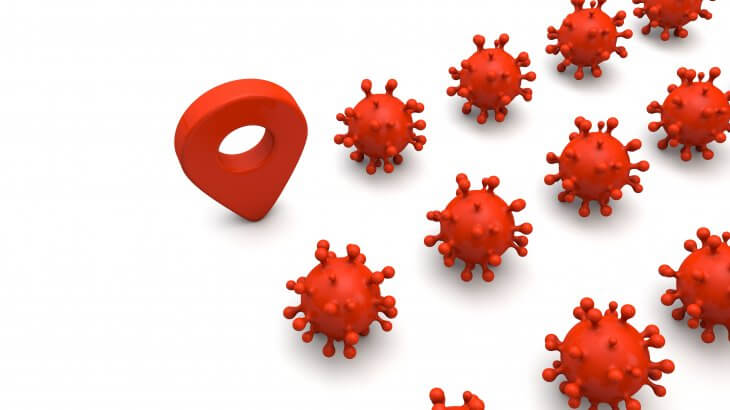The COVID-19 pandemic has forced a new term to enter our lexicon, “contact tracing,” and a University of Utah startup company, Blyncsy, is developing a technology solution to make it more efficient on college campuses across the country and beyond. The system is called Mercury. It uses Wi-Fi networks to track the movement of people and offers an opt-in system that respects privacy and security of users.
The founder of Blyncsy, Mark Pittman, is an MBA-JD graduate from the U. He has big hopes for the new product as the world grapples to manage the pandemic.
“We launched Mercury to help protect the next generation of students and our cherished institutions from further pandemic damage,” he said. “The next generation of researchers and scientists who will solve the inevitable next pandemic are preparing to start school this fall. Will they even continue if the first semester, or school year, is canceled? We can’t take the chance.”
Contact tracing is the process by which a person who is infected or exposed to a contagion has the contact they have made with others traced in order to know who else is at risk and hopefully prevent further spread. Manual contact tracing can be a cumbersome, time-consuming, and erroneous. What if the infected individual does not remember where they have been? What if they do not know the identity of the persons with whom they have had contact? Do you know all the people in your college classes?
This is where modern advances and current technologies can provide aid in the attempted mitigation of pandemics. The technology currently exists to use cell phones as electronic methods of determining to whom we have been exposed. For universities, and other campus-like environments, contact tracing will be key in ensuring safety for students and employees.
It just so happens that Blyncsy, which is based in Salt Lake City and launched with help from the Lassonde Entrepreneur Institute, realized years ago that its movement technology could be used for contagion tracking and applied for the U.S. patent for contact tracing in 2016. Blyncsy now owns the U.S. patent for electronic-device contact tracing, which was eventually granted in February 2019.

The Mercury System uses Wi-Fi networks to track the movement of people.
Universities, government office buildings, schools, and other densely populated campus-like communities, are ripe for the spread of viruses. But these same environments also create easier opportunities for contact tracing. These campuses already have Wi-Fi networks in place to support their staff as well as guests and visitors. In a setting such as a university, where all students, faculty, and staff are connected to the network, a high-fidelity, continuous contact tracing system could cover up to 98% of the students, faculty, and staff.
Using the existing Wi-Fi networks, which are typically made up of many access points, Blyncsy’s contact tracing system, Mercury, can ingest and absorb the anonymous addresses generated by cell phones.
Through an opt-in mechanism, users who access the network can chose to opt-in to be notified if they were potentially exposed to a user who has COVID-19 or other contagion(s). When the user reports that they have COVID-19 or another contagion, they can provide their MAC address. This allows the service provider to identify all of the MAC addresses that were in proximity of that infected user’s device and the approximate exposure time.
Privacy and security are of great concern for individuals when it comes to any kind of device tracing. Blyncsy and the Mercury system have gone to great lengths to ensure user safety. Addresses are not personally identifiable on their own, so privacy and security are not compromised in the contact tracing process, and the technology is only used when users opt-in. While other mobile-app-based technologies are hovering around 1% adoption and have direct access to the data on your cell phone, Blyncsy is providing a privacy conscious alternative.
It is prudent for society to know this is not our first pandemic and will not be our last. The world will be living under a “new normal” for many years to come, and contact tracing will be just one new part of daily life. If we can utilize our existing technologies to ease the burden of this virus, we must. The keys to understanding, curtailing, and preventing further spread of the virus will be social distancing, masks, hand washing, and contact tracing.
“Blyncsy is excited to bring its technology to campuses across the country and be apart of the solution that helps us navigate life safely through the current and future pandemics,” Pittman said.
Learn more about the Blyncsy Mercury system here: https://www.blyncsy.com/mercury-contact-tracing.



